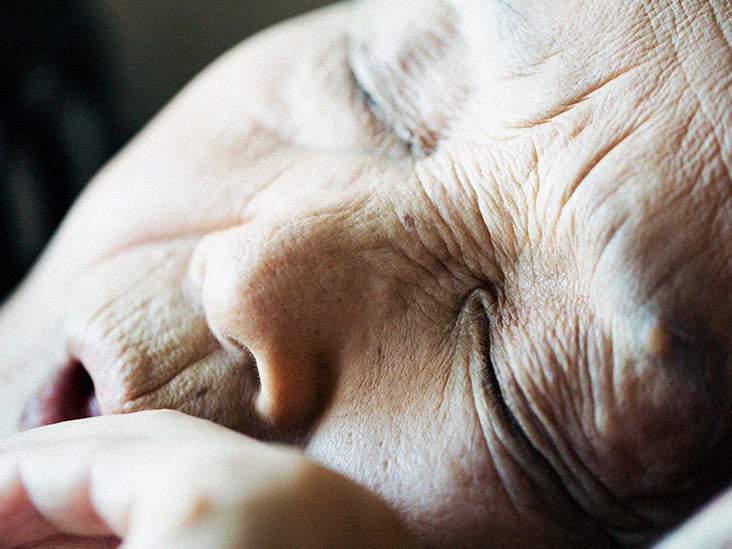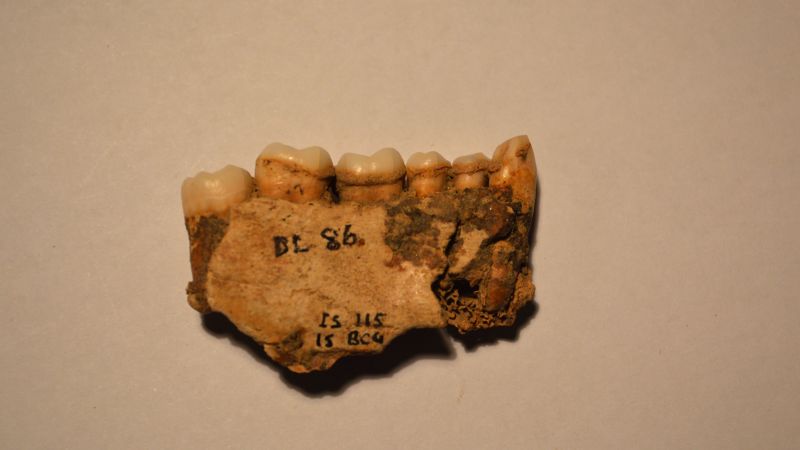
- Deep rest is important for clearing waste items from the mind, including the toxic protein beta-amyloid, which is implicated in Alzheimer’s ailment.
- Individuals who have disrupted respiratory in the course of sleep, which manifests as loud night breathing and snooze apnea, may possibly not get more than enough deep snooze.
- This outcomes in decreased alertness and poor cognitive performance during waking several hours, and authorities associate it with an greater chance of Alzheimer’s sickness.
- A pilot research suggests that a gadget that restores healthy respiration in sleep can boost cognitive performance of people in the early phases of Alzheimer’s condition.
Through deep rest, the brain flushes away its waste by way of a community of channels acknowledged as the glymphatic system.
The waste goods include the harmful proteins alpha-synuclein and beta-amyloid, which are implicated in Parkinson’s disease and Alzheimer’s disease, respectively.
Even so, a issue that
Moderate SDB causes snoring, but a extra intense form identified as obstructive snooze apnea (OSA) halts respiration wholly for many seconds at a time.
This prevents folks from finding a restful sleep, which triggers tiredness in the course of waking hours, problem concentrating, and troubles with memory.
OSA helps prevent the mind from entering the deepest phase of slumber, or sluggish wave sleep, which is when the brain’s squander disposal procedure is
Reports have implicated OSA in the improvement of Alzheimer’s disease and
“There are a selection of studies exhibiting that slumber apnea increases one’s hazard of creating Alzheimer’s disease,” claimed Jean-Paul Wiegand, Ph.D., preclinical software supervisor at the Center for Innovation in Mind Science at the University of Arizona Wellbeing Sciences in Tucson.
He instructed Clinical News Nowadays that there is also evidence that rest disturbance can be an early symptom of Alzheimer’s illness.
“Sleep apnea is a multifaceted contributing element to [Alzheimer’s disease], as it [affects both] rest high-quality — and, subsequently, the long-time period memory consolidation that happens during restful slumber, as properly as amyloid clearance — and cardiovascular well being,” he explained.
A 2014 review stories that a popular cure for sleep apnea regarded as ongoing positive airway pressure can sluggish cognitive drop in people with Alzheimer’s condition.
A new study has identified that an additional remedy, identified as myTAP, improves respiration styles all through snooze in individuals who snore.
There had been hints in this modest pilot analyze that the therapy may perhaps improve cognitive general performance in individuals with moderate cognitive impairment and Alzheimer’s illness.
myTAP is a custom made oral appliance that snaps into position more than the tooth. The unit draws the reduced jaw a little ahead, which facilitates respiration via the nose and decreases loud night breathing.
Wellness specialists feel that respiratory as a result of the nose encourages the variety of brain action that is needed to enter deep, or
A group of researchers at the Heart for BrainHealth, element of the College of Texas at Dallas and Texas A&M University, carried out a examine involving folks who snore. The contributors have been aged 50–85 yrs.
Of those people who begun the research, 14 ended up cognitively healthy, 14 had mild cognitive impairment, and nine experienced Alzheimer’s condition.
To get hold of baseline details, the scientists requested the participants to snooze as usual at residence although portable recorders calculated their respiration amount, coronary heart price, and loud night breathing.
For the duration of the daytime, clinicians assessed the participants’ memory, govt purpose, and focus.
The experts discovered that respiration fee — which is the selection of breaths for every moment — all through rest fluctuated substantially much more in the members who were being cognitively healthy than in those people with Alzheimer’s condition.
Some of the members went on to use the myTAP unit at bedtime for 4 months. Of these, five were being cognitively healthier, seven experienced moderate cognitive impairment, and 6 had Alzheimer’s condition.
After 4 months of treatment method, all the participants experienced a lower highest respiration fee, which signifies that their top quality of slumber experienced improved.
The enhancement was biggest in those with Alzheimer’s ailment, adopted by people with mild cognitive impairment, then those people who had been cognitively balanced.
There ended up also improvements in respiratory rate fluctuation, even though these benefits were not statistically substantial.
The researchers consider that if greater studies affirm their effects, their device could enable well being industry experts diagnose gentle cognitive impairment and Alzheimer’s disease in men and women who snore.
“We observed a few unique designs among the teams of people, meaning we can look for a respiratory pattern that could predispose people today to having dementia,” states Emet Schneiderman, Ph.D., a person of the researchers who is a professor in the Office of Biomedical Sciences at Texas A&M University Faculty of Dentistry.
Right after 4 weeks of cure, executive and memory function enhanced considerably in the members with delicate cognitive impairment and in some of the people with Alzheimer’s condition.
Overall, however, the review was far too small to recognize any statistically major variations in cognitive overall performance in the contributors with Alzheimer’s disorder.
In addition, a for a longer period period of treatment may possibly be necessary to see substantial improvements, the researchers believe.
“If we can make major changes for folks with moderate cognitive impairment, we can sluggish the onset of Alzheimer’s disorder,” states yet another of the scientists, Dr. Namrata Das, Ph.D., MPH, who is a postdoctoral fellow at McLean Healthcare facility, Harvard Health care School, in Belmont, MA.
The outcomes of the analyze appear in the journal Geriatrics.
The researchers are searching for funding for a observe-up review that will include MRI to detect doable structural modifications in the mind with the procedure.
The examine will also exam for doable variations in the blood stages of beta-amyloid and tau, which are the harmful proteins health and fitness professionals backlink with Alzheimer’s disease.
“We are in the course of action of making use of to [the National Institute on Aging] for a bigger study with submission in February 2022 and will combine MRI scans and blood tests for amyloid beta and tau proteins,” stated senior writer Preetam Schramm, Ph.D., from Texas A&M College Faculty of Dentistry, in an electronic mail to MNT.
“Treating very poor snooze will serve to rescue instant behavioral deficits of impaired memory consolidation at night time, but it will get time to observe whether it alleviates amyloid buildup,” stated Dr. Wiegand.
He concluded:
“I consider this examine is a action in the proper course to attack one of the most pervasive and understudied contributing aspects to [Alzheimer’s disease]. Applied early, the influence could be cumulatively beneficial.”
Nevertheless, he cautioned that a blend of solutions will be needed to address all the underlying causes of Alzheimer’s illness in the brain.




/cloudfront-us-east-1.images.arcpublishing.com/gray/3WUKM63KKZFGBOHKCMLBZOBV7A.jpg)
